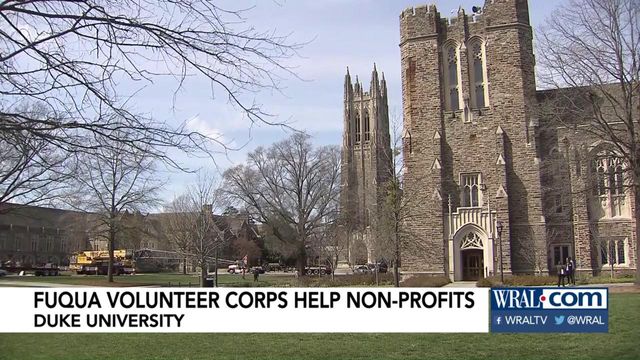Effort by Duke Fuqua School of Business aimed at saving nonprofits during pandemic
The COVID-19 pandemic has crippled many non-profit organizations that help meet the extraordinary needs of our community.
Posted — Updated“Our students were actually doing fundraisers for hospitals in China before COVID really came to the U.S.,” said Assistant Dean Jeremy Petranka.
Students were thinking about the effect the coronavirus would have on non-profits early on.
“I think it’s kind of under the radar because for-profit companies are having such difficulties. But, you’re talking about reduced giving, you’re talking about strategic and complete realignment,” said Petranka.
“They’re going to be able to help us with extracting value out of the data in our data bases, to give value back to the farmers, as well as, our leadership team,” said Suzanne Holmberg, team member of i4ei.
Volunteers are spending 20 hours a week helping with anything from financial modeling to business strategies to automation and machine learning.
“We basically give that access to the students and they get to select the ones that really fit their skills, the time that they have and also their interest,” Petranka added.
“So we’re trying to help people get housing, we’re providing food, assisting people with employment. ... How do we maintain those core services?” executive director Sheldon Mitchell said.
No matter the circumstances, the students' efforts bring hope for the future.
“We’re excited and think actually we might be able to merge from this terrible time even stronger than we were before,” said Catherine Campbell, Executive Director for the Institute of Environmental Information.
The group is working on more than 40 projects so far. Non-profits can apply on their website where dozens of volunteers are waiting to assist with their needs
• Credits
Copyright 2024 by Capitol Broadcasting Company. All rights reserved. This material may not be published, broadcast, rewritten or redistributed.





